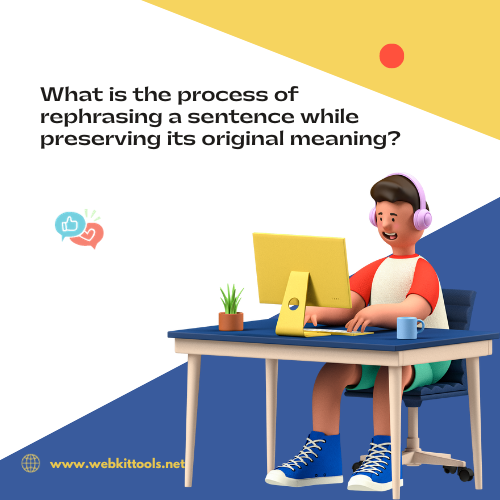HTML Encode
HTML Encode tool
Discover the efficiency and convenience of using an HTML Encode online tool for your web development needs. Encode your HTML effortlessly and enhance your coding experience today!
HTML, the backbone of web pages, demands precision and correctness. However, manually encoding HTML entities can be time-consuming and error-prone. This is where HTML Encode online tools come to the rescue. In this comprehensive guide, we delve into the world of HTML encoding, exploring the functionalities, benefits, and best practices of utilizing online tools for HTML encoding.
What is HTML Encoding?
HTML encoding involves converting special characters into HTML entities to ensure proper rendering and interpretation by web browsers. Characters like <, >, &, and ", when left unencoded, can disrupt the structure of HTML documents. Encoding them ensures they are displayed correctly and do not interfere with the page's functionality.
The Importance of HTML Encoding
HTML encoding is crucial for maintaining the integrity and security of web applications. Failure to encode special characters can lead to cross-site scripting (XSS) attacks, where malicious scripts are injected into web pages, compromising user data and system security. By employing HTML encoding, developers mitigate the risk of XSS vulnerabilities, safeguarding both their applications and users.
Features of HTML Encode Online Tools
HTML Encode online tools offer real-time encoding capabilities, allowing developers to convert special characters to their respective HTML entities instantly. This feature streamlines the coding process, eliminating the need for manual encoding and reducing development time.
Batch Encoding
For projects requiring bulk HTML encoding, online tools offer batch encoding functionality. Developers can upload entire files or chunks of code to be processed in one go, saving time and effort, especially in large-scale web development projects.
Custom Encoding Options
Advanced HTML Encode online tools provide customizable encoding options, enabling developers to tailor the encoding process to their specific requirements. From choosing the encoding standard to specifying exceptions, developers have full control over how their HTML entities are generated.
Using HTML Encode Online Tools
Online tools enhance developer productivity by automating the HTML encoding process. Developers can focus on writing clean, efficient code without being bogged down by manual encoding tasks, leading to faster project delivery and increased efficiency.
Manual HTML encoding is prone to errors, especially in complex web applications with extensive codebases. HTML Encode online tools eliminate human error by ensuring consistent and accurate encoding, reducing the likelihood of coding bugs and compatibility issues.
Encoded HTML entities can be cryptic and difficult to interpret at a glance. Online tools simplify code readability by providing a clean, human-readable representation of encoded characters, enhancing code comprehension and maintainability.
Best Practices for Using HTML Encode Online Tools
Choose an HTML Encode online tool that receives regular updates and maintenance to ensure compatibility with the latest web standards and security protocols. Updates often include bug fixes, performance improvements, and new features, enhancing the tool's reliability and effectiveness.
When using HTML Encode online tools, prioritize security by ensuring the connection is encrypted using HTTPS. This protects sensitive data transmitted between your browser and the tool's servers, safeguarding against eavesdropping and data tampering.
Test the encoded HTML across web browsers to ensure consistent rendering and compatibility. While modern browsers handle HTML entities uniformly, older or less common browsers may exhibit discrepancies in rendering, highlighting the importance of cross-browser testing.
What is the purpose of HTML encoding?
HTML encoding ensures that special characters are correctly interpreted by web browsers, preventing rendering errors and security vulnerabilities.
Can HTML encoding prevent XSS attacks?
Yes, HTML encoding mitigates the risk of XSS attacks by sanitizing user input and preventing malicious scripts from executing within web pages.
Are HTML Encode online tools free to use?
Many HTML Encode online tools offer free versions with basic encoding capabilities, while premium versions may include advanced features and customization options for a fee.
How do I integrate HTML Encode online tools into my workflow?
Simply visit the website of your preferred HTML Encode online tool, upload your HTML code or input text, and the tool will automatically encode the special characters for you.
Are there alternatives to HTML Encode online tools?
While HTML Encode online tools offer convenience and efficiency, developers can manually encode HTML entities using code editors or integrated development environments (IDEs).
Is HTML encoding necessary for all web development projects?
Yes, HTML encoding is essential for all web development projects to ensure code integrity, security, and compatibility across browsers and platforms.
Conclusion
In conclusion, HTML Encode online tools are vital in simplifying web development efforts by automating the HTML encoding process. By leveraging these tools, developers can enhance productivity, reduce errors, and improve code readability, ultimately delivering high-quality web applications that adhere to best practices in HTML encoding.














